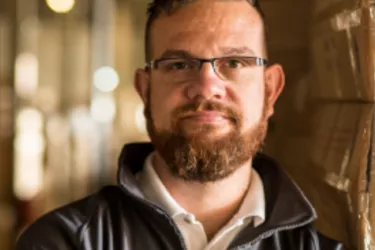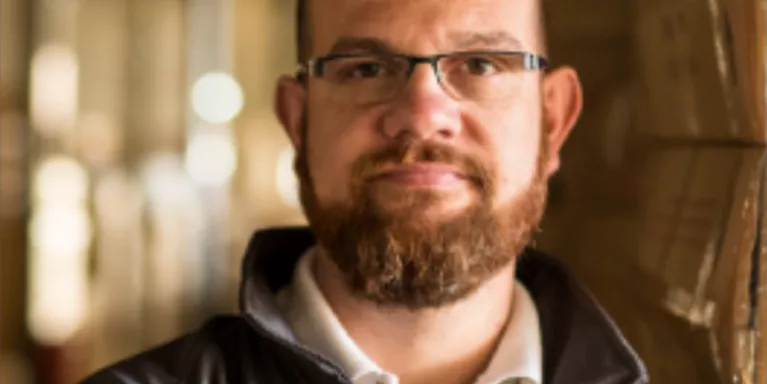Depression and anxiety: how running helped me
Claire blogs about overcoming anxiety to start running and taking on Tough Mudder for Mind.
My anxiety started back in 2009, when the home that I lived in with my husband and children was damaged by the floods. I began to notice myself overthinking everything and analysing every little irrelevant thing; worrying became a daily habit, even about things that hadn’t happened yet. At the time I didn't realise this was anxiety - I just put it down to the daily stresses of being a mum.
Later that year I became very restless and distracted, not always concentrating on what I was doing. This ended up putting me in danger – when cutting my parent’s lawn one day, I wasn’t paying attention and ran over the lawn mower cable, which electrocuted me badly. 240volts of electricity threw me from the lawn to the path and cut my head open, and I woke up later in hospital.
Returning home I felt weak, silly and pathetic in some ways. For months I couldn’t turn on a light switch or boil a kettle – anything electric terrified me. This made me feel very low and worthless – some days I didn’t see the point of getting out of bed, since I couldn’t do anything.
"For months I couldn’t turn on a light switch or boil a kettle – I didn’t see the point of getting out of bed, since I couldn’t do anything."
I decided it was time to talk to my GP, who diagnosed me with an underactive thyroid. For three years I went back and forth, saying that surely this couldn’t just be down to my thyroid. Eventually he diagnosed me with depression and put me on medication.
However, the medication made me feel more anxious and paranoid than ever, and I ended up having a panic attack on a flight. I felt like I was going to die, I couldn't breathe and felt trapped - luckily the flight crew were very understanding and helped me take control again. I visited my GP again, but he just increased my medication.
I think this was the point when I was at my lowest. I was heading in a downward spiral and drinking alcohol every night, which did me no favours. It just kept me in a dark hole, depressed and anxious.
In 2014 I decided that enough was enough. I put my foot down with my doctor and said no to medication, no more alcohol and no more blaming my thyroid for how I felt. After a lot of talking, he diagnosed me with anxiety and depression and referred me to a wellbeing clinic. The people there were absolutely fantastic - they never judged me, always listened and understood my feelings and after many sessions I began to feel like me again.
We talked for many hours over these sessions, and at one point I was asked what I liked doing when I was a child. For me, this was an easy answer: running. They suggested that I give this a go as an adult and see how I felt.
"My chest felt tight, I started to wheeze, I had tears flowing, but I was determined not to let this beat me."
So the next day, I did just that. At first it was horrible - I cried, I panicked, I couldn't breathe. Luckily I called a friend who soon snapped me out it. A week passed and I gave it another go. This time my chest felt tight, I started to wheeze, I had tears flowing, but I was determined not to let this beat me.
I pushed myself to run every day, and every time it got easier. The more I ran, the more I loved myself again - not because I'm perfect, but because every mile I ran it proved to me that I am capable of more than I ever thought possible.
It's now got to the point that when I run, it's nearly impossible to be sad. There are endorphins, the sense of accomplishment, time to think, time with friends and the feeling of my heart pounding inside my chest, reminding me that I'm alive with an amazing body that allows me to accomplish incredible things!
In 2016 I decided to run a Tough Mudder for Mind as I wanted to give something back for all the support I've received with my own battles and the support they've given my friends and family.
"Every mile I ran proved to me that I am capable of more than I ever thought possible."
Me and a team of friends took on the 10mile race which included over 20 obstacles. My team made sure I conquered some of my fears through tackling these gruelling obstacles head on, and through our sponsors we raised nearly £3000.
This year I took on the Tough Mudder challenge again with a team of 13, aiming to beat our fundraising total from last year. We got all of our friends and family involved organising sponsored bike rides, the Hull 10k, and an auction with prizes donated by my local rugby teams Hull FC and Hull KR, and my favourite football team Manchester United.
"With the support of my family and friends I dug my heels in, and with pure determination and lots of tears I battled on to cross that finish line."
I also took on my biggest challenge yet, pushing my limits to run a marathon. I did this in my home town of Hull and completed it in 5hours 21mins which I was immensely proud of. It was a very hard challenge and every mile was a battle. My anxiety kicked in and I questioned myself all the way round, but with the support of my family and friends cheering me on along the route I dug my heels in, and with pure determination and lots of tears I battled on to cross that finish line.
All of these fundraisers took our total to a staggering £4219 which is fantastic and I can't thank my team mates, friends and family enough for all the support they've given me.


Information and support
When you’re living with a mental health problem, or supporting someone who is, having access to the right information - about a condition, treatment options, or practical issues - is vital. Visit our information pages to find out more.
Share your story with others
Blogs and stories can show that people with mental health problems are cared about, understood and listened to. We can use it to challenge the status quo and change attitudes.

















